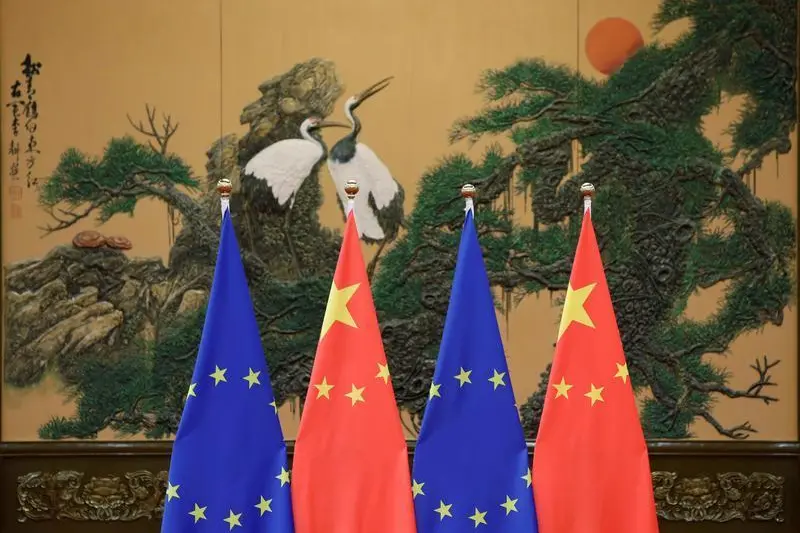PHOTO
The European Union's diplomatic service has set out plans to recalibrate the bloc's China policy, aiming to reduce the risks of economic dependency on Beijing while continuing to cooperate on global issues.
The European External Action Service presented the proposal in a seven-page document sent to EU governments ahead of a meeting of their foreign ministers in Stockholm on Friday.
The document is the EU's latest attempt to strike a balance between the views of its 27 member countries and a desire to keep a distinctive EU approach to Beijing while also preserving a close partnership with the United States.
In a letter accompanying the proposal, EU foreign policy chief Josep Borrell said there were at least three reasons for "re-calibrating" China policy.
He said these were "the degree to which China is changing with nationalism and ideology on the rise; the hardening of the US-China competition affecting all policies areas; and the fact that China is a key player in regional and global issues".
The proposal, seen by Reuters, says that "cooperation, competition and rivalry will continue to be at the centre of the EU’s China policy, even if the weighting between these different elements may vary according to China’s behaviour".
It adds: "It is obvious that in recent years the rivalry aspect has become more important. However, we must continue to engage with China. First, because of its influence in the world. Second, because China is here to stay."
The document also states that coordination with the United States will "remain essential".
But it says the EU "should not subscribe to an idea of a zero-sum game whereby there can only be one winner, in a binary contest between the US and China."
In terms of how the EU can "de-risk" when it comes to economic dependency on China, the paper suggests screening investments more closely and more robust export controls.
It also says the EU should "diversify sources of supply in key sectors, in particular those crucial to our green and digital transition" such as semiconductors, 5G and 6G telecoms, batteries, raw materials and critical minerals. (Reporting by Andrew Gray; Editing by Sonali Paul)





















